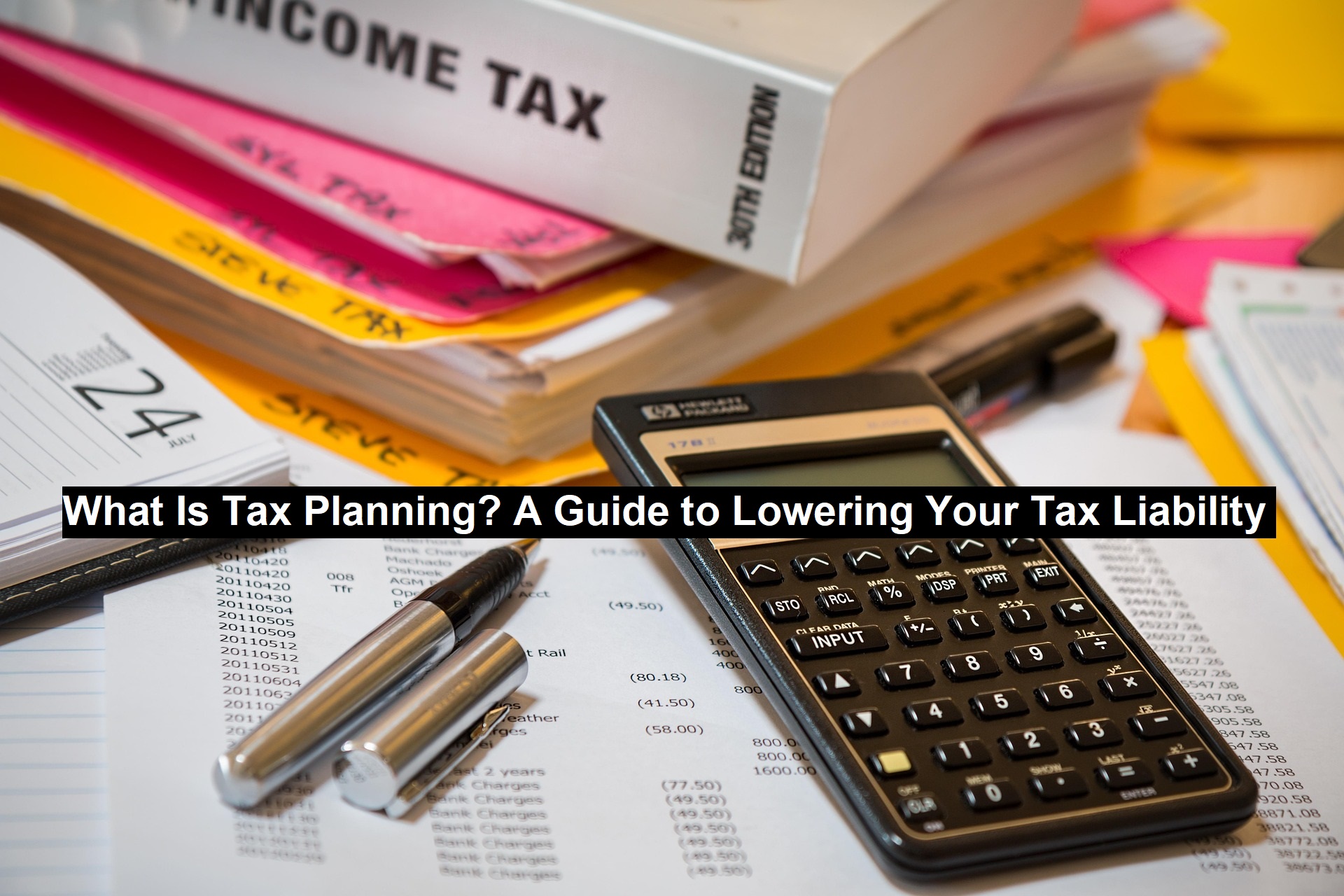Picture this: Tax season is approaching, and you find yourself frantically gathering receipts, sorting through deductions, and figuring out how much you owe. It’s a stressful, last-minute scramble that many taxpayers face each year. However, you can control the process and keep more of your hard-earned money with tax planning.
It isn’t just for high-income earners or corporations—it benefits everyone. You can legally minimize tax liabilities and avoid unexpected tax burdens by making well-informed financial decisions throughout the year.
This blog will cover practical tax planning tips that can set you up for financial security.
What is Tax Planning?
Tax planning is a strategic way to manage your income, expenses, and investments to reduce the amount you owe in taxes. It means fixing your finances year-round instead of rushing at the last minute to take advantage of tax-saving opportunities and meet your long-term financial goals.
While tax preparation focuses on correctly filing your taxes, tax planning is a proactive way to optimize your tax obligations.
Read: Safeguarding Success: A Comprehensive Guide for New Entrepreneurs to Protect Finances
Why Tax Planning Matters
Proper tax planning is about achieving financial security and making smarter money decisions. It helps you structure your finances to minimize tax burdens while maximizing long-term savings. More specifically, knowing how to use deductions, exemptions, and credits can lower your taxable income. It also ensures you follow tax laws and avoid penalties and potential audits.
5 Key Components of Tax Planning
Tax planning has many layers that help you lower taxes and build earnings. Here are five areas to focus on.
1. Understanding tax brackets and taxable income
The more you earn, the higher your tax rate. However, the government doesn’t tax all your income at the highest rate—it divides it into brackets. For example, if you’re in the 24% bracket, only the portion of your income above the lower bracket threshold is taxed at that rate.
Strategic planning can help you reduce taxable income and stay in a lower bracket. Contributing to a 401(k) or IRA, timing bonuses, and maximizing deductions can lower your overall tax bill while keeping more of your money.
2. Deductions and credits
Credits directly decrease the tax you owe, while deductions only reduce your taxable income. Standard deductions include mortgage interest, medical expenses, and student loan interest. Knowing which credits and deductions apply to you is vital, leading to significant tax savings.
3. Tax-efficient investments
Tax-advantaged accounts like 401(k)s, IRAs, and HSAs can lower your taxable income while growing your savings.
For instance, the money you put into your 401(k) comes from your salary before taxes. If you earn $60,000 and save $10,000, you only pay taxes on $50,000. Your savings can grow tax-free until you take them out when you retire.
4. Business and self-employed tax strategies
If you run a business, you can deduct expenses like home office costs, equipment, and trips. Choosing the proper business structure, such as an LLC or S-Corp, can also impact your taxes. Proper planning ensures that you maximize any tax benefits as a self-employed individual.
5. Estate and inheritance tax considerations
Without proper planning, your heirs may face high taxes on what you leave behind. Setting up trusts, gifting money tax-free, or focusing on estate planning can protect your family’s future.
Simple Tax Planning Tips
Being proactive with tax planning doesn’t have to be complicated. Here are some simple steps to get started.
1. Track and organize your expenses
Keep receipts, invoices, and tax forms in one place throughout the year. You can put them in a physical folder or scan and save their digital versions in the cloud. You can also use expense-tracking apps to record your spending as you go. This way, you can file taxes accurately and claim all eligible deductions without last-minute stress.
2. Maximize deductions and credits
Many people lose money because they don’t know what tax benefits they qualify for. Learn about eligible deductions such as student loan interest or charitable contributions to lower your tax bill. Researching or consulting a tax expert can help you save money.
3. Set aside estimated tax payments
You should set aside estimated tax payments to avoid penalties if you’re self-employed. Since taxes aren’t taken out automatically, paying every few months helps you avoid a big tax bill. Planning keeps your finances stable and avoids tax surprises.
4. Consult a tax professional
Tax laws change often, making it hard to keep up. So, use tax planning software or consult a tax expert to follow the latest rules. Professional advice can also guide you to save on the money you owe.
Plan Your Taxes, Secure Your Finances
Beyond cutting costs, tax planning is all about making wise financial decisions. Take note of the concepts and tips above to reduce stress, maximize savings, and build a financially secure future.
Whether you’re an employee, business owner, or freelancer, learning about tax changes allows you to adjust your strategy and avoid unnecessary liabilities.

